The public tour season for 2024 is now closed. The Garden re-opens for public tours on February 15. We look forward to welcoming you in 2025.
Madame Ganna Walska
Passionate gardening visionary, and generous humanitarian
About Madame Ganna Walska
The names Madame Ganna Walska and Lotusland are synonymous with the beautiful estate garden known for a dramatic presentation of tropical and sub-tropical plants. The Garden’s founder, the fascinating Ganna Walska, came from a modest background and planted a legacy that continues to flourish.
Born Hanna Puacz in 1887 in Brest-Litovsk, Poland, Ganna changed her name to pursue a career as a professional singer. She performed in New York and Paris, and toured America and Europe, attracting the attention of audiences, critics, and admirers on both sides of the Atlantic.
After a vibrant life as an concert singer, theatre owner, perfumer, and fashionista, among other things, Madame Walska came to California to begin anew. In 1941, she purchased the estate that is now Lotusland and devoted the last 43 years of her life to the creation of its gardens. In doing so, she left a legacy of great ingenuity and unmatched beauty.
"Now the word 'impossible' does not exist in my vocabulary anymore. Nothing is impossible."Ganna Walska
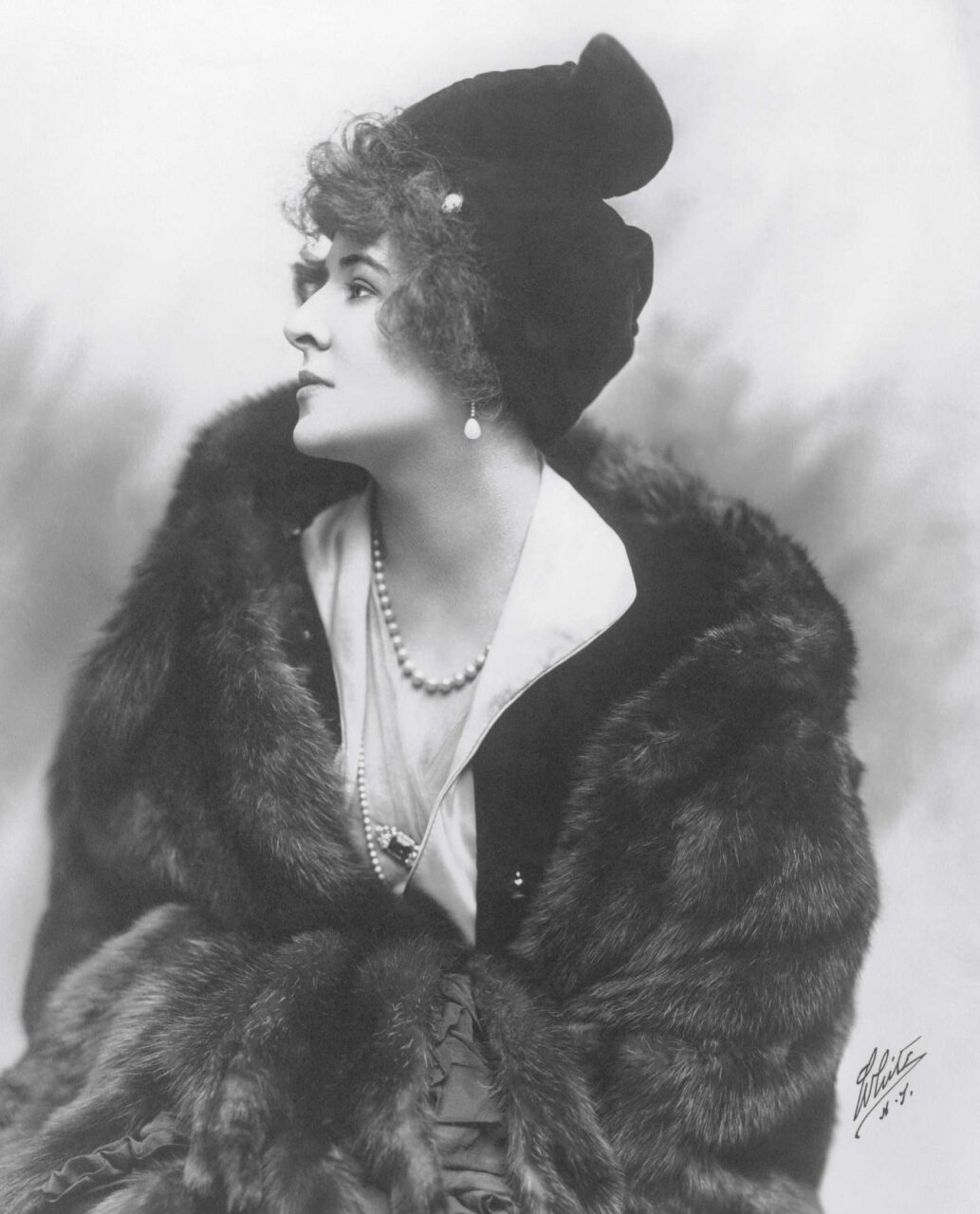
The woman who was to become the fascinating Ganna Walska was born Hanna Puacz in 1887 in Brest-Litovsk, Poland to a family of landowners.
She was an adolescent when her mother died and after her father remarried, Hanna was sent to live with her uncle, a Canon of the Catholic Church in St. Petersburg. At the onset of her musical studies in Russia, Hanna took the stage name of Madame Ganna Walska. Madame, being the customary title for married women, well-known actresses, and operatic singers in Europe; Ganna, a Ukrainian form of Hanna; and Walska, reminiscent of her favorite dance, the waltz.
Over the next two decades, she performed in New York and Paris, and had numerous concert tours in America and Europe, attracting the attention of audiences, critics, and gentleman admirers on both sides of the Atlantic.
She married six times, wrote her autobiography Always Room at the Top, and continued to study vocal music and spiritual teachings in search of creative fulfillment and personal enlightenment.
After decades of residing in France and New York, Ganna Walska turned her sights toward California’s sunny climate and its free-thinking residents. In 1941, with the encouragement of her last husband, yogi master Theos Bernard, she purchased the 37-acre Cuesta Linda estate in Montecito, intending to use it as her home, but also as a spiritual center where Tibetan Lamas would be brought over to translate the sacred texts. She renamed the property Tibetland and displayed her considerable Tibetan art collection in the library of the main house and the adjacent Pavilion, where she preferred to live.
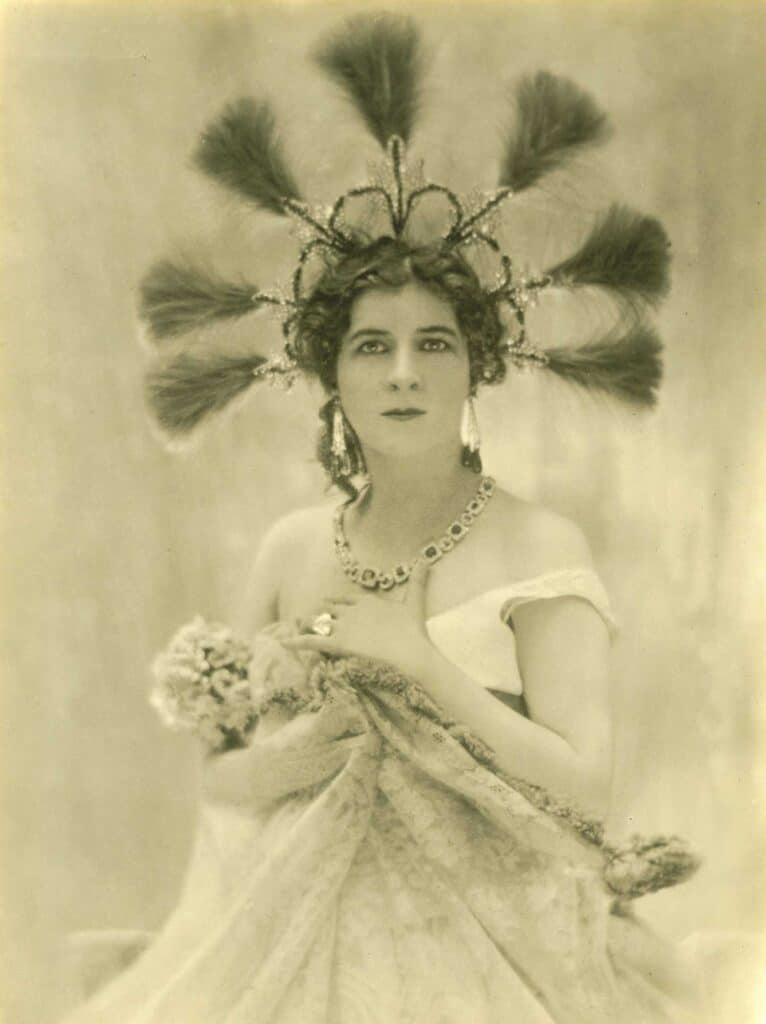
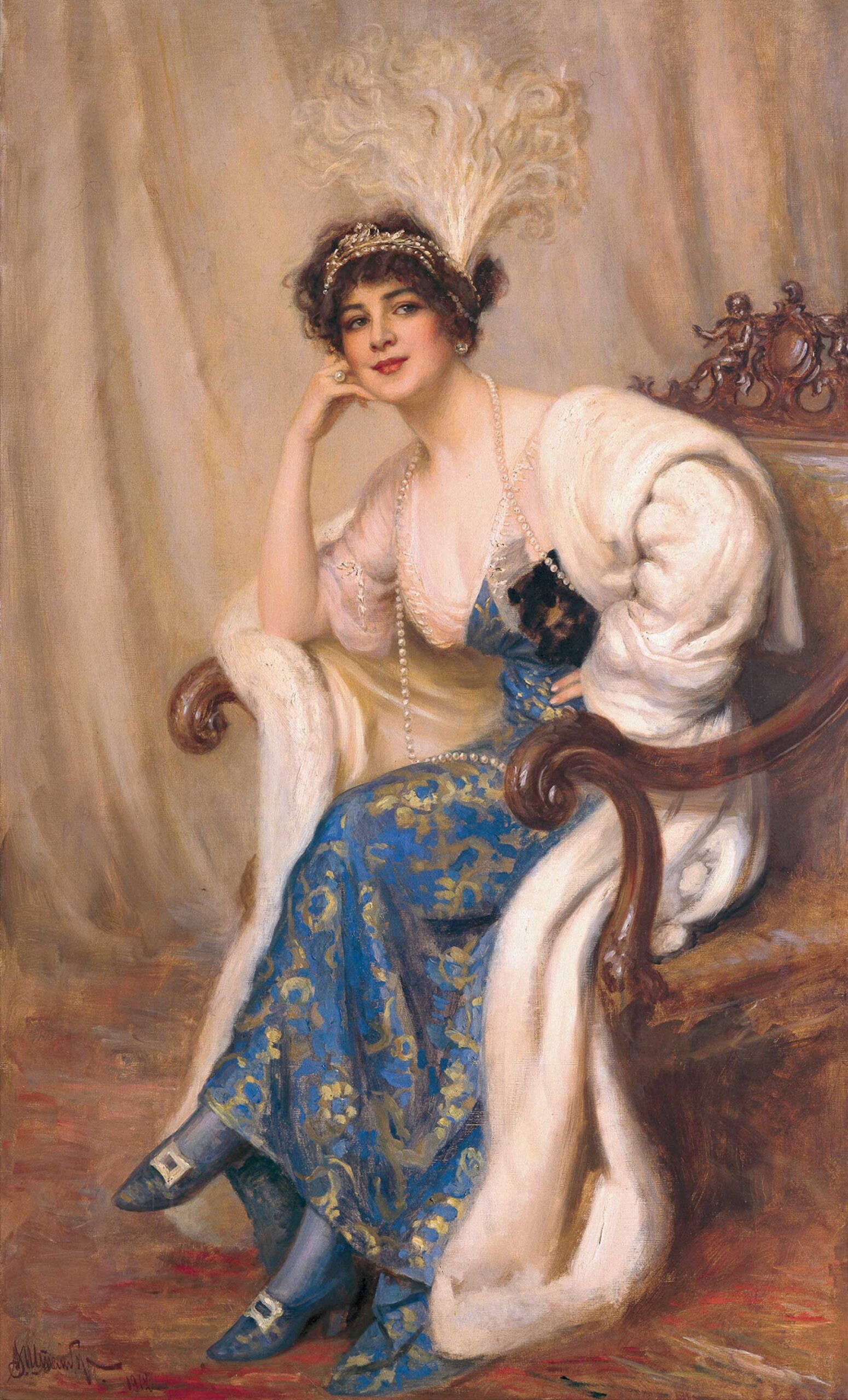
Because of World War II, and despite Ganna Walska’s lawyers’ best efforts, the monks never appeared, and later after Bernard sued her for divorce and she prevailed, the estate was renamed Lotusland in honor of the sacred Indian lotus growing in one of the ponds on the property.
Ganna Walska’s garden experiences at her French chateau outside of Versailles, her energy, drive, and considerable resources were poured into creating a botanical garden of rare plants using her artistic talents to create a fantasy world of exquisite beauty. To accomplish this, she worked with several regional landscape architects and designers, including Lockwood de Forest, Jr., Ralph T. Stevens, Willian Paylen, Oswald da Ros, and Charles Glass.
Madame Walska loved to mass single species of plants together.
She wanted the best, the biggest, and the most unusual plants available and was often willing to pay any price to get them. So determined was she to finish the work she had begun, that in the 1970s she auctioned off her amazing jewelry collection to help fund her vision for the garden.
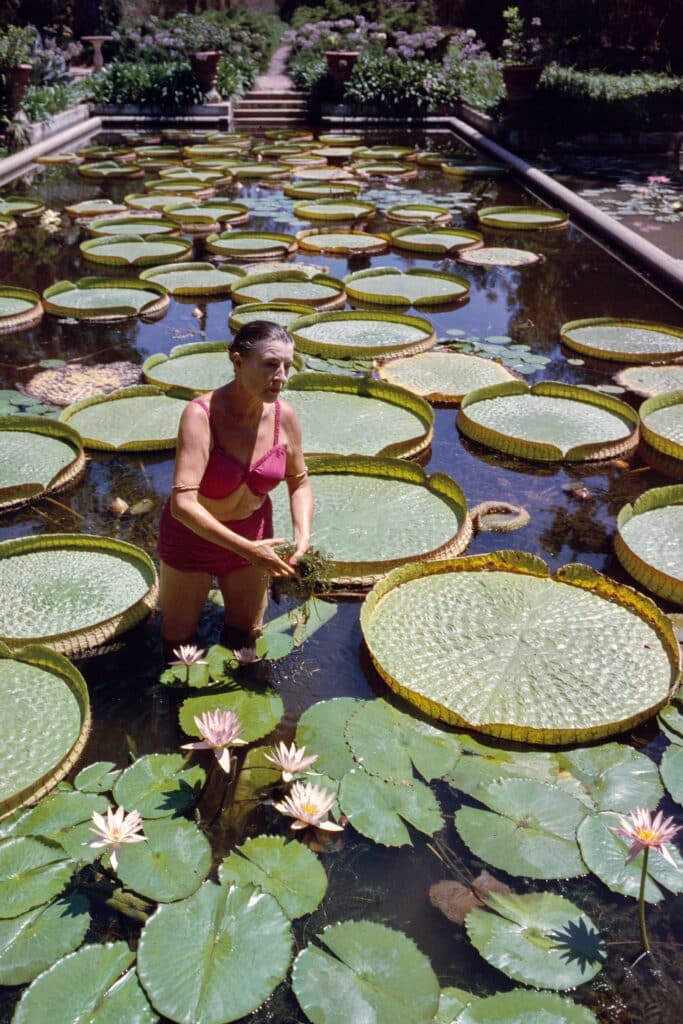
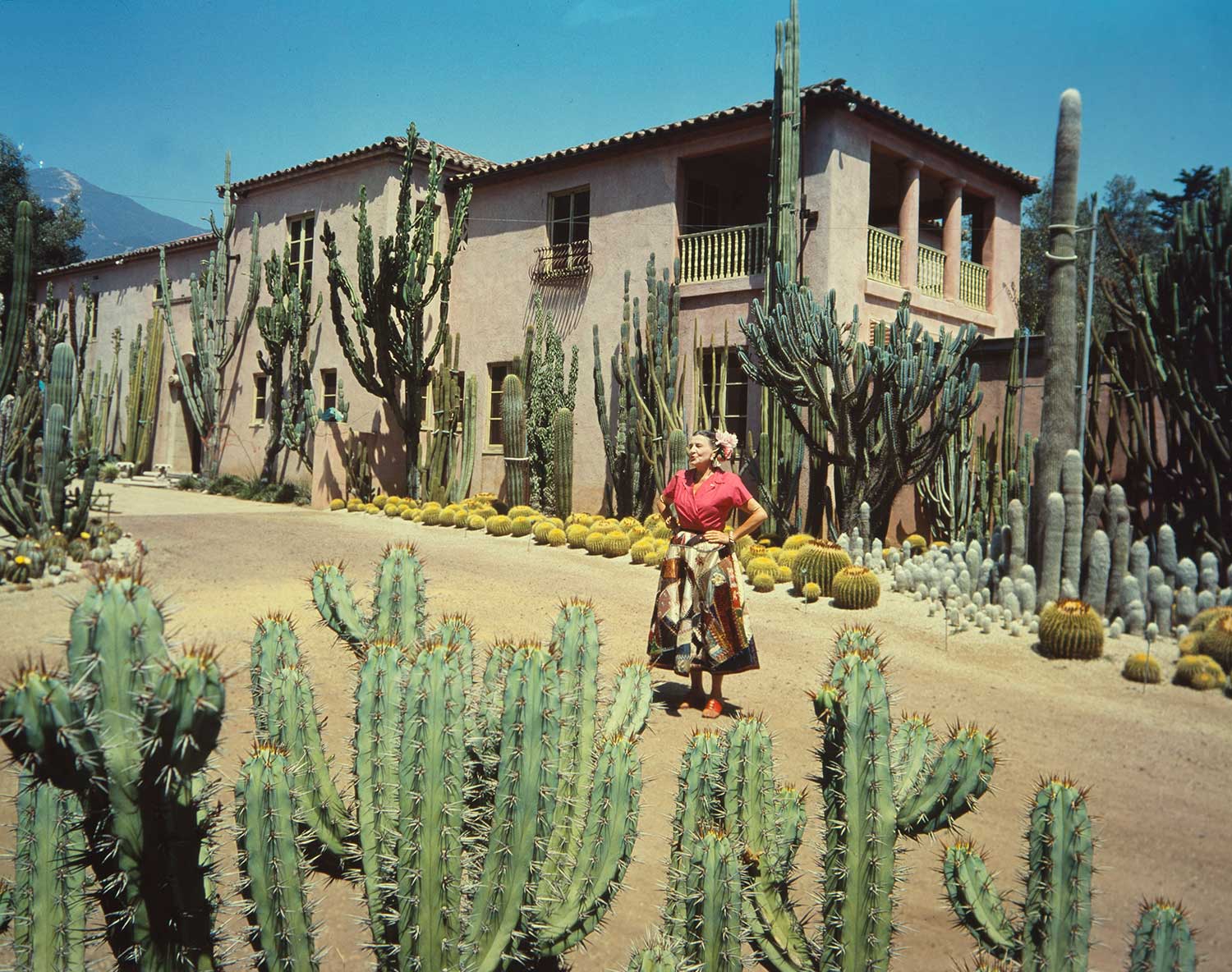
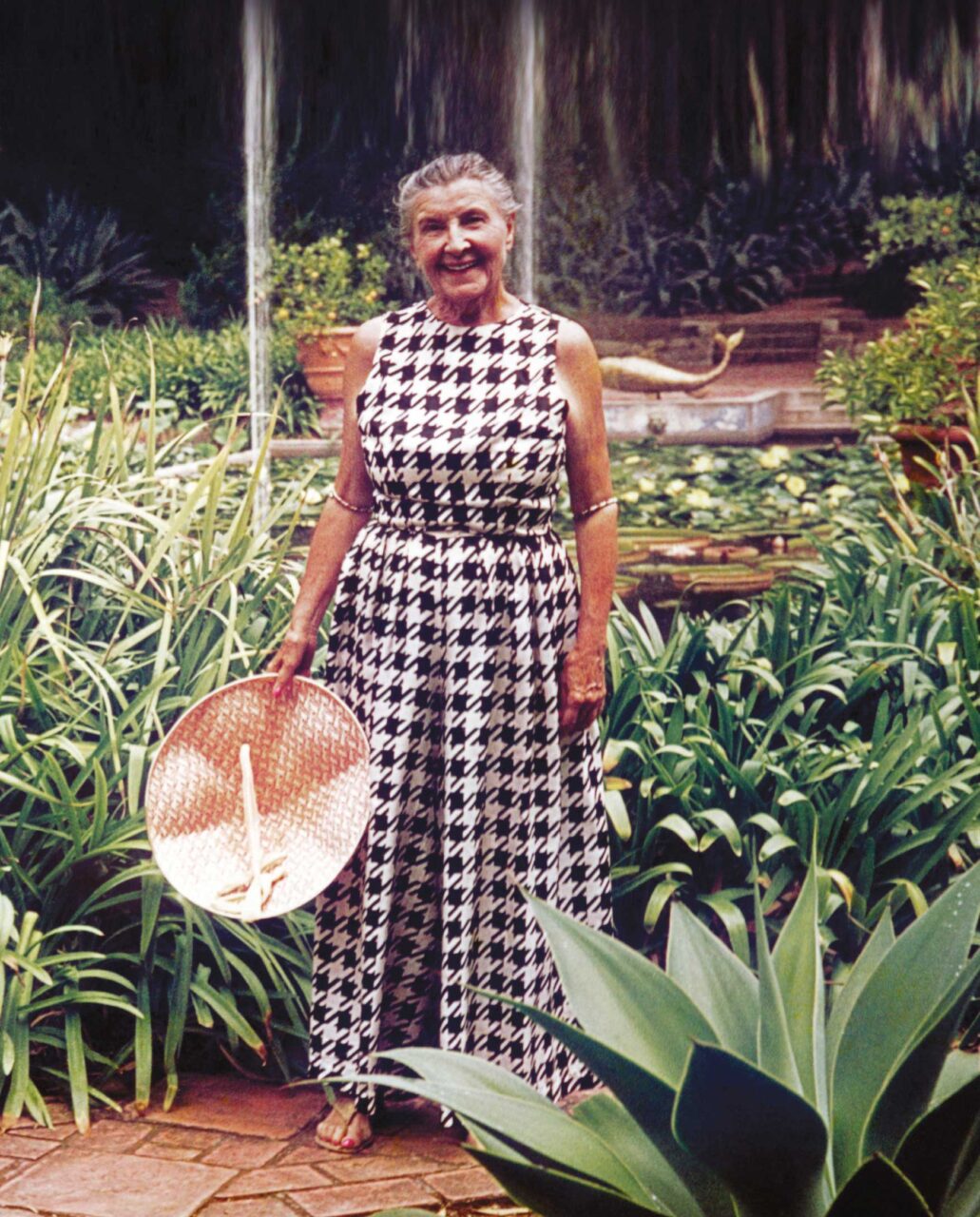
Up until the last few years of her life, Ganna Walska was the feisty, intractable, “head gardener” of Lotusland.
After failing health, she died at home on March 2, 1984, leaving her garden and her entire estate to the Ganna Walska Lotusland Foundation. This insured that her legacy would be protected and her wish to share the garden with others would be realized.

